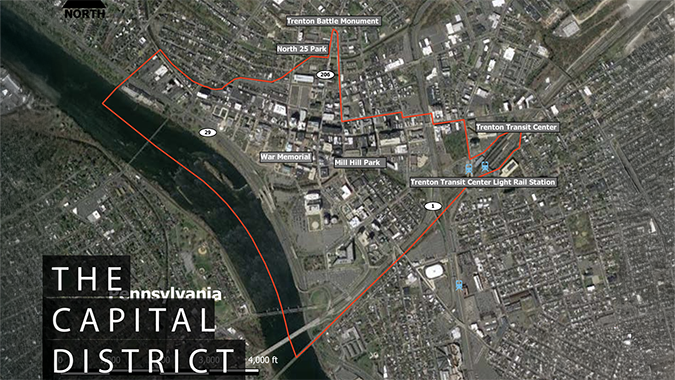The New Jersey Economic Development Authority has extended the deadline for public feedback on its draft guidelines for implementing the Garden State C-PACE program that allows eligible commercial property owners to access financing for energy and water efficiency projects at their buildings.
The Garden State Commercial Property Assessed Clean Energy Program (C-PACE) was established under a law signed in 2021 that directed NJEDA to draft implementing guidelines and administer the program. Draft guidelines were published in April, and the original May 15 deadline for public comments has been extended “until further notice,” NJEDA said this week.
C-PACE works by enabling eligible commercial, industrial, agricultural, and certain multi-family residential real property owners to access up to 100% financing to undertake green energy improvements at their properties and repay the financing through the payment of an additional assessment to their municipality, similar to property tax, sewer, or water bills.
Properties owned by tax-exempt or nonprofit entities such as schools, hospitals and institutions of higher education, are also eligible to participate in the program under the draft guidelines.
The program benefits property owners by minimizing the upfront investment for clean, energy, water conservation or resiliency-related improvement that can increase their property’s value. The C-PACE assessment is attached to the property and transfers to a new owner. As a special assessment, the C-PACE obligations may, if permitted by the lease agreement, be passed through to tenants.
Each New Jersey municipality will be able to join the C-PACE program by adopting an opt-in ordinance and entering into an agreement with NJEDA. After a municipality opts in, eligible property owners in that jurisdiction may use the C-PACE program to finance improvements to properties located there.
A wide range of projects are included in the draft guidelines, including insulation, energy-efficient windows, doors, lighting, and HVAC systems, water conservation improvements, renewable energy systems, electric vehicle charging systems, energy storage systems, stormwater management systems, and construction projects that protect against flood and hurricane damage.
The draft guidelines, which cover eligibility criteria, the responsibilities of participants, the application process, technical standards, fees and local program requirements, can be viewed on NJEDA’s website here. Feedback can be submitted by email to Gardenstatecpace@njeda.com.




